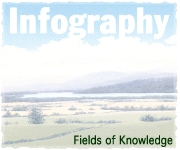
 | |
Television -- Global | |
The following sources are recommended by a professor whose research specialty is global television. |
· International Telecommunications Union The ITU is the major global regulatory body for all telecommunications activities, including broadcasting and television. http://www.itu.int/net/home/index.aspx
· Benjamin Barber, Jihad Vs. McWorld: How the Planet is Both Falling Apart and Coming Toegether and What This Means for Democracy (Times Books, 1995). This study is a well-considered and sustained effort toward articulating a global view of television after the Cold War.
· Ellen Mickiewicz, Changing Channels: Television and the Struggle for Power in Russia (Oxford, 1997). A terrific in-depth study of how television changed in Russia with the end of the Cold War.
· Philip Drummond, Richard Paterson, and Janet Willis, eds. National Identity and Europe: The Television Revolution (BFI, 1993). This anthology is very helpful in capturing the scholarship of several leading media scholars very soon after the end of the Cold War. While some findings are now a bit dated, the book is nevertheless of lasting value as a snapshot of critical thinking after a crucial transition in twentieth century history.
· John Sinclair, Latin American Television: A Global View (Oxford, 1999). Latin American media studies is a lively subfield with many fine studies, and this is one of the best.
· James Schwoch, "Cold War, Hegemony, Postmodernism: American Television and the World-System, 1946-1991" (Quarterly Review of Film and Video, 1993). Analyzes how and why television was a component of American global influence during the Cold War, and how that may change in the aftermath of the Cold War.
· Michael Tracey, The Decline and Fall of Public Service Broadcasting (Oxford, 1998).
· Jianying Zha, China Pop: How Soap Operas, Tabloids, and Bestsellers are Transforming a Culture (New Press, 1995).
· Monroe Price, Television, the Public Sphere, and National Identity (Oxford, 1995).
· John Tomlinson, Cultural Imperialism (Johns Hopkins, 1991).
· Geoffrey Reeves, Communications and the "Third World," (Routledge, 1993).
· Armand Mattelart, Mapping World Communication (Minnesota, 1994).
· Elizabeth Fox, Latin American Broadcasting: From Tango to Telenovela (John Libbey, 1997).
· Donald Browne, Electronic Media and Indigenous Peoples: A Voice of Our Own? (Iowa State University Press, 1996).
· The Freedom Forum includes extensive discussion of issues relevant to global television. http://www.freedomforum.org
"The Infography about Global Television"
http://www.infography.com/content/515621267033.html
© 2009 Fields of Knowledge
Essex, Iowa 51638-4608 USA